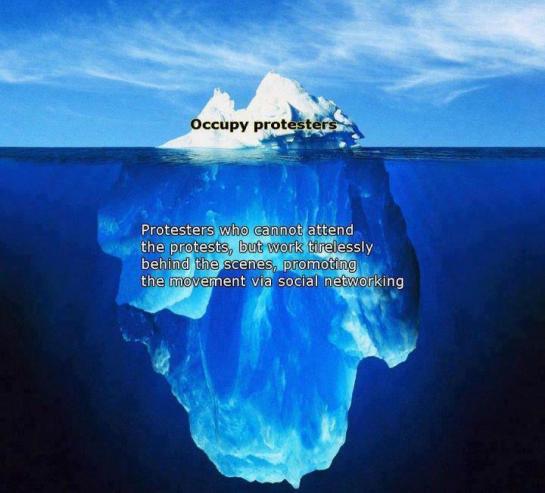Day 500 “Yeah, I’m a believer, hey, hey, hey”
Oh, everything’s okay, then.
(In case you were thinking there were no voices saying everything is just hunky-dorey…)
How I learned to stop worrying and embrace the atom
Fukushima ‘crisis’ changed my mind on nuclear power
Like millions of other people in Japan, I watched the events of March 2011 unfurl with shock and trepidation. The massive earthquake, the terrible tsunami and then what seemed to be a dreadful nuclear disaster.
Yet now I wonder at my naivety, because the nuclear accident at the Fukushima No. 1 nuclear plant triggered in me a critical review of everything I thought I knew about radiation and nuclear power. I am now firmly pronuclear, and not despite the Fukushima accident, but because of it.
{snip]
Yet, not one person was killed by radiation, and nobody has been harmed, though two workmen, who have since been released from hospital, were reported to have received “radiation exposure to the legs.” Overall, not much of a “disaster,” especially compared to a genuine industrial catastrophe like Bhopal in India in 1984, where more than 10,000 people died and 500,000 were injured.
[snip]
The relatively minor effects of the Fukushima accident can really be appreciated when compared to the hideous health consequences of the use of other major energy sources. Every year thousands of people are killed in coal mining accidents in China alone, and the burning of coal and oil kills hundreds of thousands of people worldwide annually through the release of air pollutants. Compared to those numbers, is it really possible that people choose not to support nuclear energy, when Fukushima radiation has killed no one at all?
Tepco: Cesium getting stirred up? Fukushima plant still emitting 10,000,000 becquerels every hour
Title: After 500 days, Fukushima No. 1 plant still not out of the woods
Source: Asahi, AJW
Author: By TAKASHI SUGIMOTO
Date: July 24, 2012
[…]
According to calculations by Tokyo Electric Power Co., the operator of the Fukushima No. 1 plant, a total of about 10 million becquerels per hour of radioactive cesium was being emitted from the No. 1 to No. 3 reactors as of June.
[…]
since February, the level of radiation emitted from the reactors has remained unchanged.
“There is the possibility that the cesium that fell on the reactor buildings was stirred up again,” said Junichi Matsumoto, acting general director of TEPCO’s Nuclear Power and Plant Siting Division.
The most radiation is being emitted from the No. 2 reactor, which is releasing 8 million becquerels an hour. The radiation is believed to be leaking from a hole that was made in the wall of the top floor of the reactor building.
[…]
Protecting Children Against Radiation: Japanese Citizens Take Radiation Protection into Their Own Hands
Say-Peace Project
Introduction (with Japanese translation) by Norimatsu Satoko
Printable versions of this article are available: [PDF] [Google Docs]
Robert Alvarez, a former senior policy adviser at the U.S. Department of Energy said in a Democracy Now! interview on June 10, “The nuclear industry, particularly in the United States, and elsewhere—Russia and Japan—has had a very long history of withholding information and misleading the public about the hazards of their activities.” Being no exception to Alvarez’s generalization, the Japanese government, since the mutiple meltdowns and explosions at the Fukushima Daiichi nuclear power plant in mid-March, has withheld or controlled information about health risks of radiation, expected dispersion of radioactive materials,1 and their actual contamination measurements in areas surrounding Fukushima Daiichi.2 Instead of providing candid information to the public, the government started campaigns in the opposite direction—to lull the public into worrying less about radiation and its health risks.
Article continues at:
http://japanfocus.org/-Say_Peace-Project/3549
= ~ = ~ = ~ = ~ = ~ = ~ = ~ = ~ = ~ = ~ = ~ = ~ =
Release of final gov’t report on Fukushima disaster sparks residents’ criticism
FUKUSHIMA — The release of the government’s final investigative report on the nuclear crisis at the Fukushima nuclear power plant that highlights missteps by the Tokyo Electric Power Co. (TEPCO), the central government and other authorities in handling the crisis, has triggered residents here to voice their criticism and demand apologies from both TEPCO and the government.
Article continues at:
http://mainichi.jp/english/english/newsselect/news/20120724p2a00m0na013000c.html
= ~ = ~ = ~ = ~ = ~ = ~ = ~ = ~ = ~ = ~ = ~ = ~ =
From ENENEWS at:
New gov’t report stresses they still know very little about health implications of Fukushima disaster — Possibility of gov’t meltdown cover-up raised on NHK (VIDEO)
NHK Newsline
Uploaded by: MissingSky101
Uploaded on July 23, 2012
At 1:50 in
[A panel of experts] say officials actively denied the possibility of meltdowns and misled the public.
At 4:00 in
The word meltdown disappeared from the media briefings. In fact the agency spokesman denied a meltdown had even happened. Ultimately it took 3 months for authorities to admit a triple meltdown had occurred at Fukushima. This raises the possibility of a gov’t cover up.
At 6:20 in
The report stressed that despite the scope of their investigations, they still know very little about the root causes of the Fukushima accident, along with the health and environmental implications. So this conclusion could raise questions from the public regarding the ability of the gov’t and nuclear authorities to assess whether nuclear plants should be restarted.
= ~ = ~ = ~ = ~ = ~ = ~ = ~ = ~ = ~ = ~ = ~ = ~ =
☢☢☢☢☢☢☢☢☢☢☢☢☢☢☢☢☢☢☢☢☢☢☢☢☢☢☢☢☢☢☢☢☢☢☢☢☢
